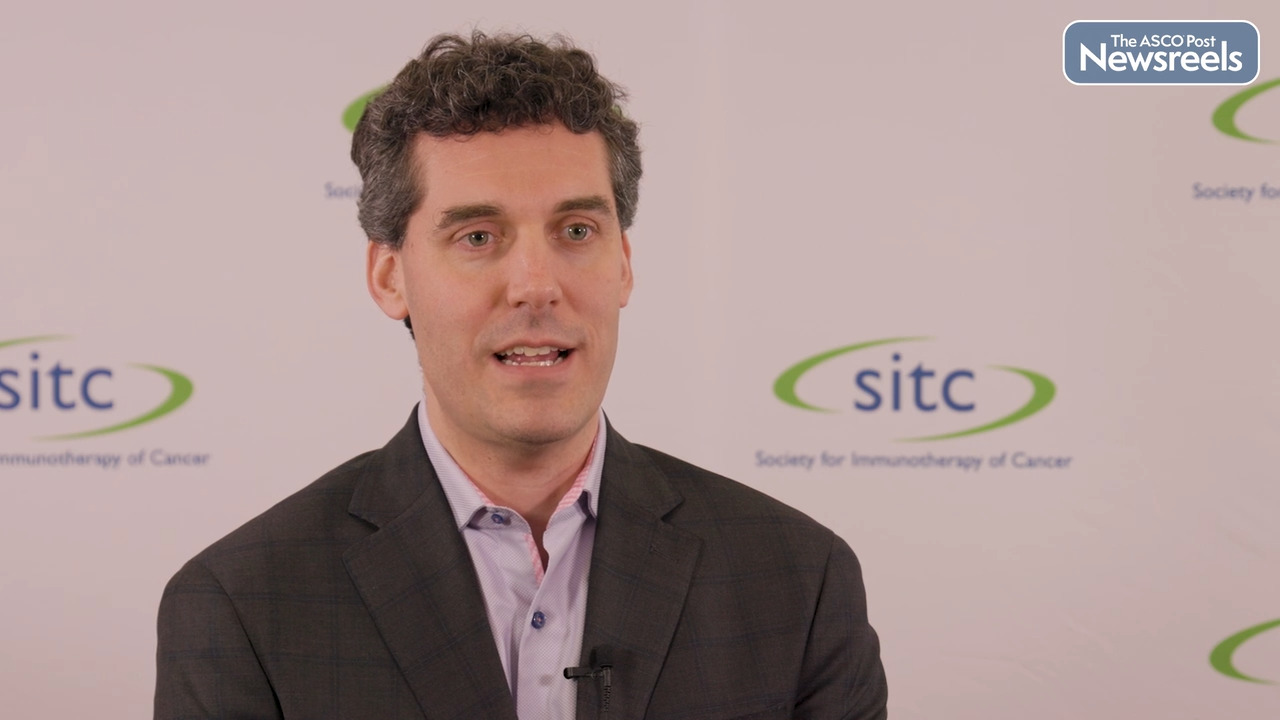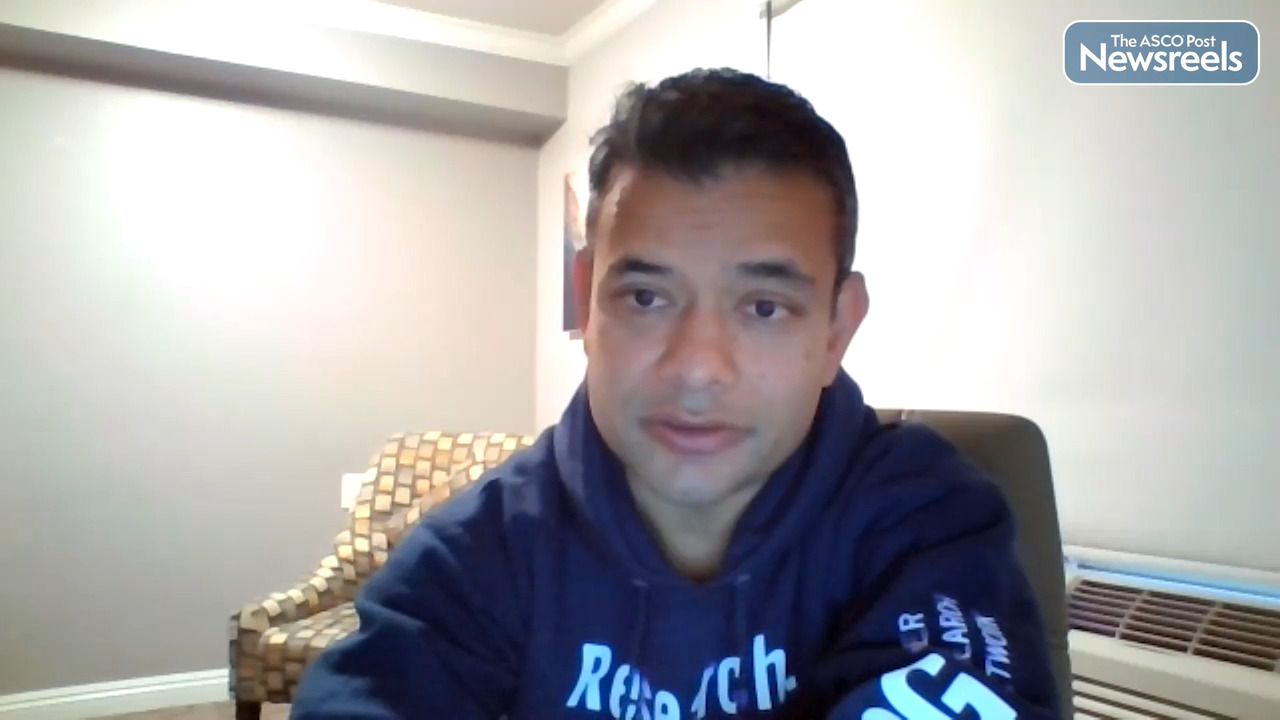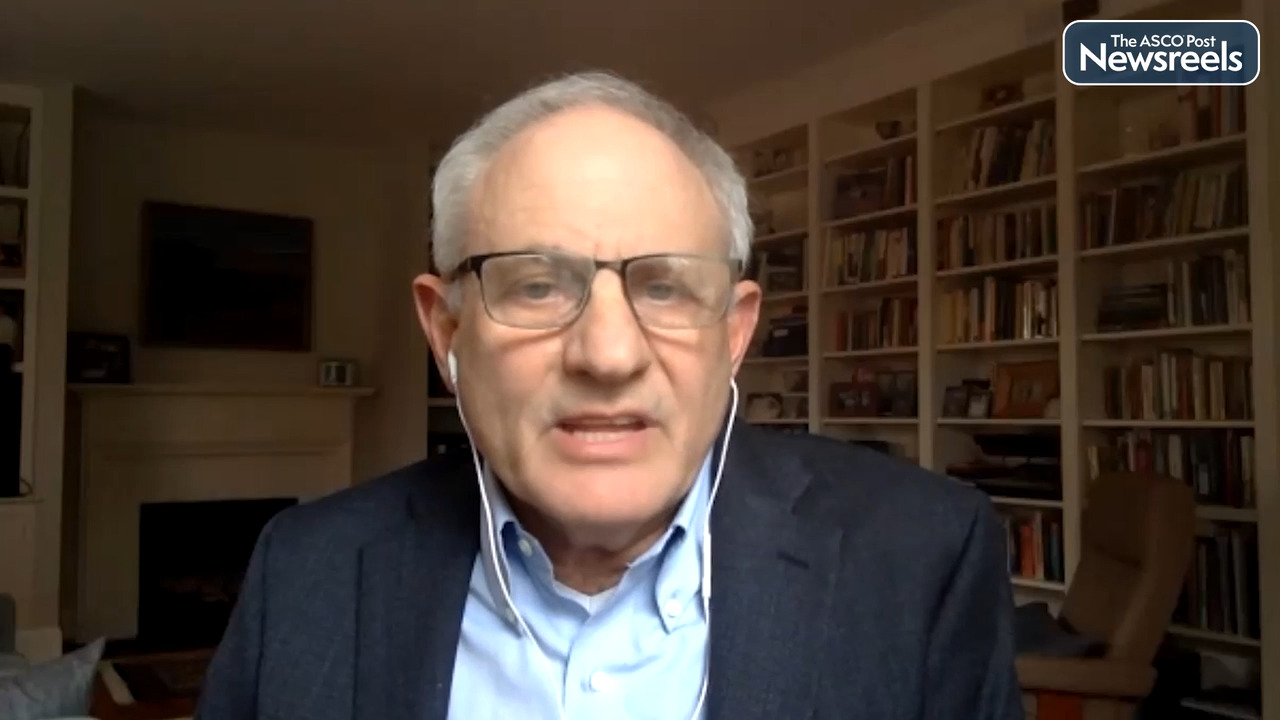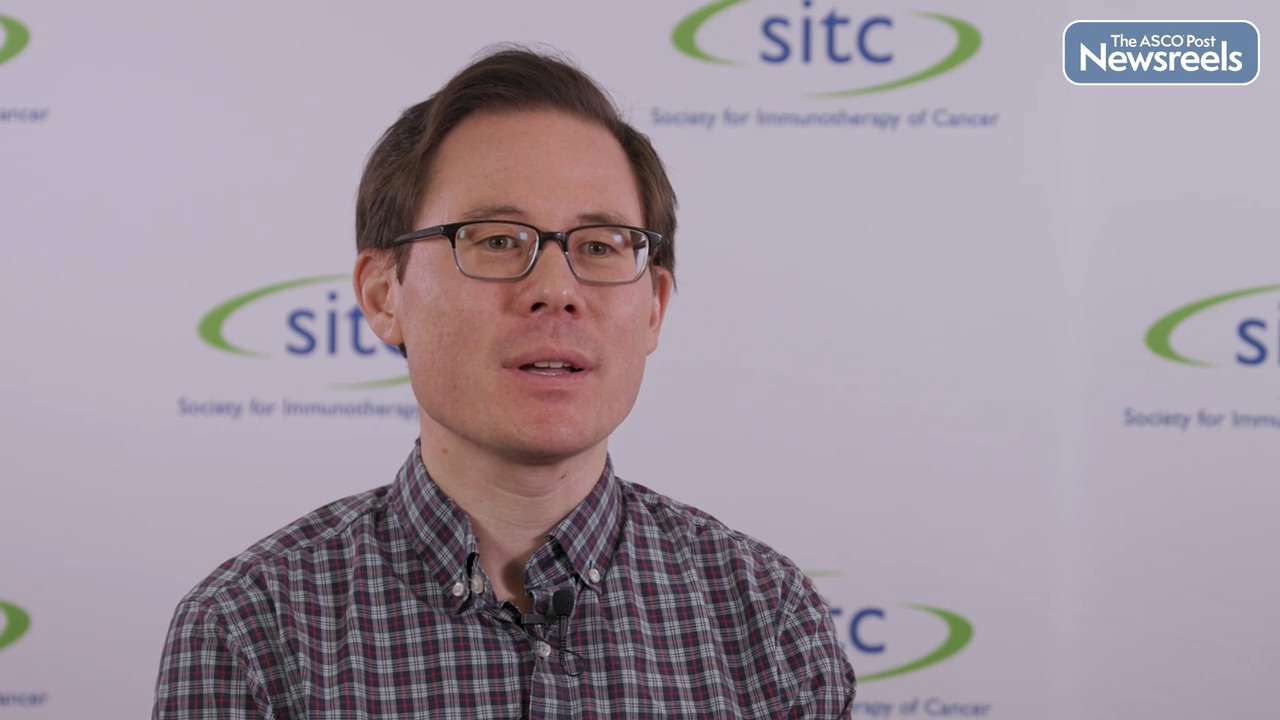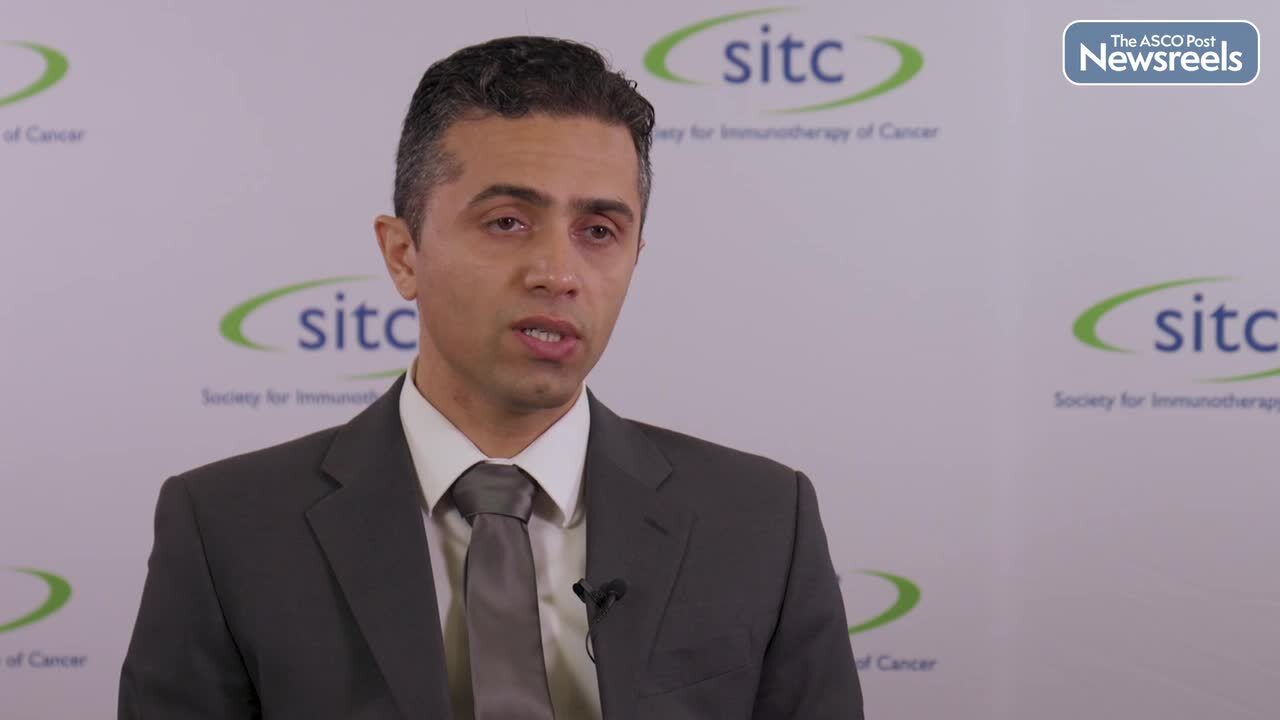Roger Li, MD, on Bladder Cancer: Boosting Immune Checkpoint Blockade With an Oncolytic Adenovirus
SITC 2022
Roger Li, MD, of the H. Lee Moffitt Cancer Center, discusses results from a phase II single-arm study of CG0070, a cancer-selective oncolytic adenovirus that creates mechanistic synergy with immune checkpoint blockade. In this trial, the virus was combined with pembrolizumab in patients with non–muscle-invasive bladder cancer that is unresponsive to bacillus Calmette-Guérin. At 3 months, 88% of the 35 patients enrolled achieved a complete response (Abstract 666).
Transcript
Disclaimer: This video transcript has not been proofread or edited and may contain errors.
The purpose of our study was to look at the efficacy of combination CG0070, which is an oncolytic adenovirus, along with immune checkpoint blockade, in the setting of BCG-unresponsive CIS-containing non-muscle invasive bladder cancer. The BCG-unresponsive space has been well described, but it's a very difficult to treat disease in which the standard of care is surgical removal of the bladder. Because the disease takes place in a cohort of patients who are older and frail, it's unfit. That procedure is unfit, unfortunately, for many of the patients, because it's fraught with a lot of complications. Hence, there is a critical, unmet need for efficacious bladder-sparing therapies.
We hypothesized that the combination of CG0070, along with immune checkpoint, can engender an efficacious anti-tumor immunogenic response that can help patients preserve their bladders, and set out to test this hypothesis.
In the study, we enrolled 35 patients and out of the first 32 evaluable patients, we looked at the primary endpoint, which is the 12-month complete response rate. And of the first 15 patients who had reached that endpoint, we're seeing a 73% complete response rate at one year. In the entire cohort, there were just under 90% of the patients who had reached the complete response by the three-month mark. And those numbers compared to pembro alone were much better. Whereas the pembro alone cohort had achieved only a 40% complete response at three months and 20% complete response by one year. So we're seeing a really synergistic effect between the virus and pembrolizumab together, and in addition to that, we're also seeing a tolerable toxicity profile where the combination really didn't have any surprises in terms of toxicity, with essentially just added toxicity from the two agents put together.
As a next step, we're really looking forward to launching a randomized control trial where we're testing the combination of the two agents against pembrolizumab alone in this disease setting to really show that it's more efficacious than the monotherapy agent.
The ASCO Post Staff
Michael A. Postow, MD, of Memorial Sloan Kettering Cancer Center, discusses new findings on the correlation between CD8 cell PET imaging with zirconium-89–crefmirlimab berdoxam and CD8 cell immunohistochemistry in patients with advanced cancer receiving immunotherapy. Noninvasive CD8 PET scanning with crefmirlimab berdoxam permits whole-patient, longitudinal CD8 assessment, which is currently under investigation as a biomarker for immunotherapy responsiveness and may be a useful tool for immunotherapy development and clinical management (Abstract 1472).
The ASCO Post Staff
Sumanta Pal, MD, of the City of Hope Comprehensive Cancer Center, discusses phase I results from the COBALT-RCC study, a first-in-human clinical trial exploring CD70 CAR T-cell therapy in patients with clear cell renal cell carcinoma. The agent appeared to show an excellent safety profile with no unexpected toxicities and antitumor activity. One durable complete response is the first to be achieved with allogeneic CAR T-cell therapy in patients with relapsed or refractory solid tumors, offering proof of concept for further exploration of CD70-targeted CAR T cells in renal cell and other CD70-positive malignancies (Abstract 558).
The ASCO Post Staff
Michael B. Atkins, MD, of Georgetown Lombardi Comprehensive Cancer Center, explores recent clinical trials in immuno-oncology in which the phase III trial produced markedly different results from the phase II trial. To help understand the potential value to patients of late-stage trials of treatment combinations, the Society for Immunotherapy of Cancer has developed a checklist for investigators, applicable to any regimen in which immune modulation is an important component of the antitumor effect.
The ASCO Post Staff
Jonathan Chen, MD, PhD, of Massachusetts General Hospital, discusses “immunity hubs” that interact with a reservoir of stem-like CD8 T cells and appear to be associated with subsequent response to anti–PD-1 blockade in patients with non–small cell lung cancer. Hybrid hubs, Dr. Chen says, are a favorable class of immunity hub notable for CD8-positive and TCF7-positive cells, as well as CCL19 expression (Abstract 956).
The ASCO Post Staff
Saman Maleki, PhD, of Canada’s Western University and Lawson Health Research Institute, discusses modifying the gut microbiome in patients with advanced melanoma to induce a response to anti–PD-1 therapy and potentially reduce primary resistance to immunotherapy. A fecal microbiota transplant from healthy donors before treatment appears to be beneficial (Abstract 614).
